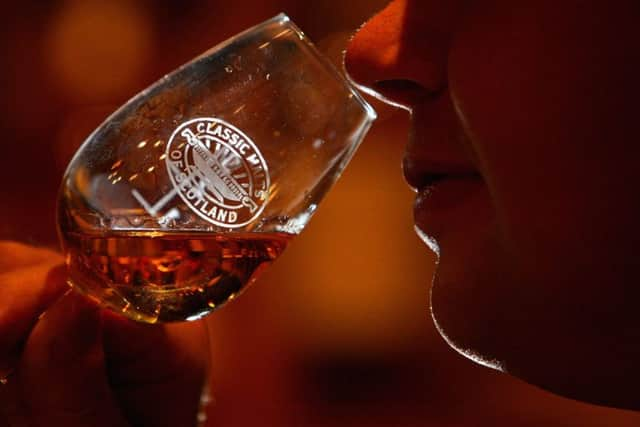Scotch whisky under threat from fakes post-Brexit, warn Labour
Currently the drink is protected by EU law through a geographical indication (GI) which outlaws imitation and sets specifications for the product.
The recent white paper on Brexit sets out that the UK will establish its own GI scheme following Brexit providing “continuous protection” for UK GIs.


Advertisement
Hide AdAdvertisement
Hide AdLabour said they are not convinced this will be consistent with the current position under EU law.
All of Scotland’s Labour MPs, except Shadow Scottish Secretary Lesley Laird, have signed a joint letter to Brexit Secretary Dominic Raab urging more clarity on the future of the scheme.
The letter highlights food and drink exports comprise the largest share of Scotland’s international exports at £5.5 billion in 2016 with whisky accounting for almost three quarters (73%) of this at £4 billion.
Labour claims the 160,000 jobs are industry directly and indirectly supported by the Scotch whisky industry.
The letter states: “It is important to provide business with continuity and certainty, which would be delivered by the introduction of a GI framework consistent with the EU’s position.
“This would allow for mutual recognition of UK and EU GIs with the equivalent level of protection between jurisdictions.”
Signatory Ged Killen added: “So many jobs are at stake that it is incredible the Government has this far failed to provide the certainty which the Scotch whisky industry requires to plan for a post-Brexit future.
“It is clear that the new Brexit Secretary has his work cut out in appeasing his own backbenchers, but their whims should not take precedence over the 160,000 people whose livelihoods depend on prompt action.
Advertisement
Hide AdAdvertisement
Hide Ad“The proposed two-year transition period is insufficient to provide that reassurance and it is clear a proper framework which addresses the issue of GIs for the whole food and drink sector is needed to guarantee that those protections continue.”
